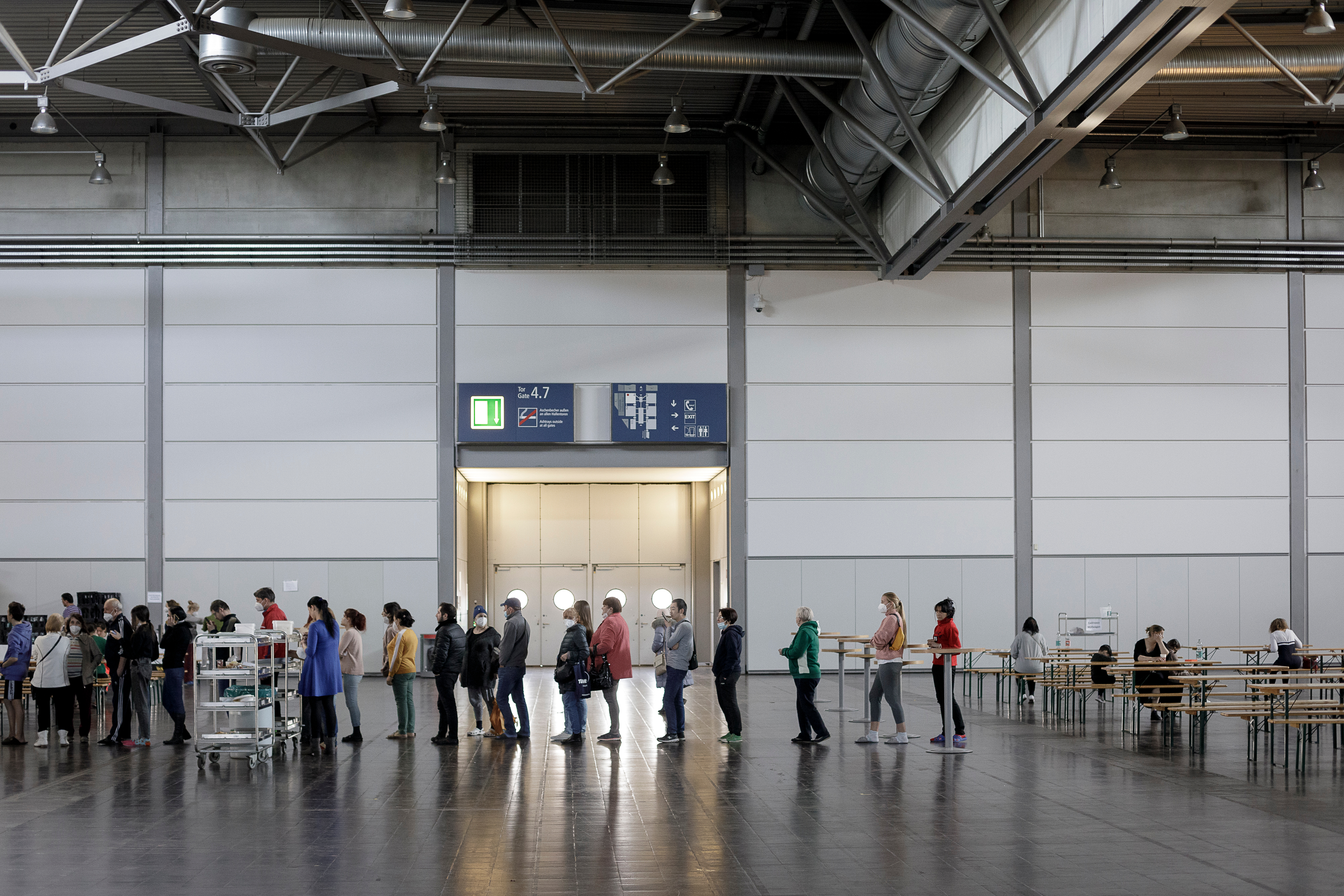Unseen?! Refugees with disabilities in Germany
Refugees with physical, mental, and other types of disabilities face numerous barriers in Germany, from their timely identification and initial reception to appropriate accommodation in the municipalities. The German Red Cross has long-standing experience in supporting migrants and refugees, providing practical assistance, accommodation, and counselling immediately after their arrival in Germany, and numerous activities supporting their integration in the long run. Providing customized and needs-based services is essential, and so is a good understanding of the actual needs of everyone.
The German Red Cross published a report assessing the needs of refugees with disabilities in Germany, aiming to address the obstacles that refugees with disabilities face during their asylum procedure, to optimize its approach to supporting refugees with disabilities, and to advocate at state, federal, and local levels for services which meet their needs. It presents results obtained from more than 60 interviews with refugees with disabilities, their family members, caretakers and staff from different accommodation facilities in three federal states (Brandenburg, Schleswig-Holstein and North Rhine-Westphalia).
The EU Reception Conditions Directive formulates standards for the asylum procedures of refugees, including refugees with vulnerabilities. According to the Directive, the identification of special protection needs must be "initiated within a reasonable time after receipt of an application for international protection." In the best case, the identification must have taken place prior to the interview for asylum to ensure that the refugee with a disability can receive procedural guidance appropriate to the disability, and receive a setting appropriate to the disability in the interview itself.
However, the German Red Cross’ report evidenced a lack of systematic identification of disabilities when refugees first arrive in Germany, which prevents them from being able to prove their protection claim later in the asylum procedure. Not only can a failure to identify disabilities have serious consequences for the asylum process, but also for identifying the appropriate accommodation of the person concerned. If a disability remains unidentified, it is unclear whether pertinent care can be provided in the assigned reception facilities which might not be specialized in needs-oriented accommodation.

In initial reception centres and while transiting to collective accommodation centres in municipalities, difficult access to medical specialists can have a negative impact on the health situation of refugees with disabilities. Even if disabilities have been identified, it can be hard to ensure the necessary support for those affected due to a restricted access to certain medical procedures for people who are still in the process of obtaining asylum. In addition, the accessibility for people with disabilities inside and outside reception facilities is limited, and refugees with disabilities are often unable to obtain comprehensive information about their rights. The conditions for staff in the facilities, such as time pressures, increasingly complex legal cases, poor interpretation services, and high personnel turnovers, further make it difficult to provide appropriate advice and support to refugees with disabilities.
The needs assessment revealed an overall systemic lack of orientation to the needs of refugees with disabilities. As a result, they are often assigned to municipalities that do not have services in line with their needs, making the transition between initial reception accommodations and municipal accommodation disruptive in care.
In comparison to initial reception accommodation, more diverse support and care structures are available for people with disabilities in some municipalities. However, it is often not possible to provide needs-based support for refugees with disabilities because they are often not being accommodated appropriately in these structures, exemplified in a lack of accessible, barrier-free housing in communal accommodations. Specialized services, such as integration courses for people with cognitive disabilities, are completely missing.
Based on the results of the needs assessment, the German Red Cross now aims to ensure that its services will take the needs of refugees with disabilities into consideration even further. The next goal is to improve the identification of special protection needs of refugees, and to ensure that refugees with disabilities will have access to important information about their rights in the accommodation centres run by the German Red Cross. A series of recommendations for federal, state, and local levels were also developed. The main ones are:
- A systematic, uniform identification of disabilities needs to be implemented nationwide upon arrival to be able to assess needs and allocate accommodation and care services accordingly and speedily.
- It is important to secure procedural asylum guarantees to which refugees with disabilities are entitled.
- Priority must be given to granting access to standard medical and social care from the beginning, and independent of the residence status.
Basic information
Activity name
Unseen?! Refugees with disabilities in Germany
Country
Germany
Duration
September 2020 - August 2022
Partners
German Red Cross Headquarters, in collaboration with the German Red Cross regional branches in North Rhine-Westphalia, Schleswig-Holstein and Brandenburg
URL
Unseen?! – Presentation of results of the needs assessment of refugees with disabilities in Germany (in German)
Resources
Report: Unseen?! Refugees with disabilities in Germany – results of the needs assessment (in German)

